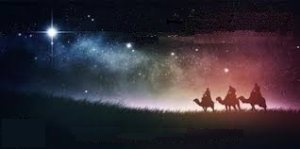
A re-reading of the three wise men
In times of fundamentalism and religious intolerance, a re-reading of the Magi that they  have adopted and also “contemplating” the birth of Jesus is essential for dialogue.
have adopted and also “contemplating” the birth of Jesus is essential for dialogue.
The first necessary is that God has communicated with the “wizards” of the East, he can reopen closed hearts for reconnection (religion of the Latin verb religare which is to reconnect), for they were not even religious in the conventional sense, but
magicians and God reconnected them.
The second is that the divine communication was through stars, which means that they could understand this language and that God spoke in their human language, that is, there are forms beyond the dogmatic communication between God and men, even non-believers.
Cosmology is an ancient and fundamental part of philosophy, its evolution and composition studies the universe, and comes from antiquity, the pre-Socratics studied it, also seek the explanation of the origin and transformation of nature and the universe and build myths and divinity, creating a relationship between mortal and imortal beings.
So God is not so indiferente to this, a universal proposition should not disregard cosmology, and if one wishes to construct a cosmogony, that is the beginning and end of all life, then an eschatology is also constructed, and Christian eschatology may be related to Is not this, after all, God the beginning and the end of everything?
Thesecond re-reading, the question about of the stars, in fact even today they are looking for cosmological evidences ofthe star that the Magi followed, a star, a come t, this could help to date Christmas of a more precise date.
Theologians such as Teilhard Chardin did not fail to consider the cosmological hypothesis, and the notion of a Christ-centered universe helps a non-fundamentalist interpretation of a more complex eschatology, and so we have recourse in the previous post (in 1 / 4 /2019) to St. Gregory of Nazianzen.
The third is that the magi were “contemplating” the boy-God, in addition to the active vita, Hannah Arendt also spoke of her in The Human Condition (published in 1956, with Brazilian edition of 2009), which comes from the conference Work, Work and Action (Brazilian publication of 2006), but already spoke of this question Aristotle in the bios politikos and the vita negotiosa or actuosa in Augustine, and, recently Byung Chull Han in The society of the fatigue.
But they did not come to worship only, where the element offered incense is essentially this, but also brought gold in the sense of wealth and myrrh in the sense of sacrifices offered.
Magi should signify the opening of Christianity to other languages which are also an expression of the infinite, of the universe, and of the sacredly constructed life in all and in all.









